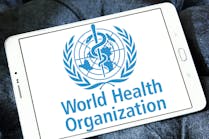New model targets improved cancer care for Medicare patients
The U.S. Department of Health and Human Services and the Centers for Medicare & Medicaid Services (CMS), announced a new model aimed at improving cancer care for Medicare patients and lowering healthcare costs.
CMS’ Center for Medicare and Medicaid Innovation (Innovation Center) designed the Enhancing Oncology Model (EOM) to test how to improve healthcare providers’ ability to deliver care centered around patients, consider patients’ unique needs, and deliver cancer care in a way that will generate the best possible patient outcomes. The model will focus on supporting and learning from cancer patients, caregivers, and cancer survivors, while addressing inequities and providing patients with treatments that address their unique needs.
Building on the lessons learned from the Innovation Center’s Oncology Care Model (tested from July 1, 2016 – June 30, 2022), EOM is a voluntary model that will run for five years, from July 2023 through June 2028. Model participants will include oncology practices that treat people with Medicare undergoing chemotherapy for breast cancer, chronic leukemia, lung cancer, lymphoma, multiple myeloma, prostate cancer, and small intestine/colorectal cancer.
To support healthcare transformation, participating providers will also provide Enhanced Services such as patient navigation, care planning, collection of electronic patient-reported outcomes (ePROs), and screening for social needs that may affect treatment, such as transportation issues and nutritional needs. EOM will also encourage other payers (e.g., commercial payers, state Medicaid agencies) to align with its core concepts to promote a consistent approach across payers and EOM participants’ patient population.
The central goal of EOM is to better support patients and improve their care experience, advancing a key goal of the Cancer Moonshot Initiative. Oncology practices who participate in EOM can expect to provide patient-focused Enhanced Services, such as 24/7 access to a clinician, patient navigation services, a detailed care plan, and screenings for health-related social needs. Patients will also have an opportunity to share feedback on their overall cancer care experience and health outcomes. EOM aims to increase and improve communications among patients, oncologists, and care teams in-between appointments and enable patients to more easily reach their healthcare providers with questions.
In addition to requiring participants to screen for health-related social needs, EOM includes other design elements that help drive CMS’ commitment to advancing health equity, including:
· Offering an additional payment to participating oncology practices that provide Enhanced Services to patients who qualify for both Medicare and Medicaid,
· Requiring participating providers to report patient demographic data (e.g., race, ethnicity, language, gender identity), and
· Requiring participating providers to develop plans showing how they will address health equity gaps in their patient population.
Earlier this month, HHS announced first-year funding awards of $215 million in a five-year, $1.1 billion investment into three national programs to prevent and control cancer. In May, HHS announced the availability of $5 million for community health centers, funded by HHS’ Health Resources and Services Administration, to increase equitable access to life-saving cancer screenings.





